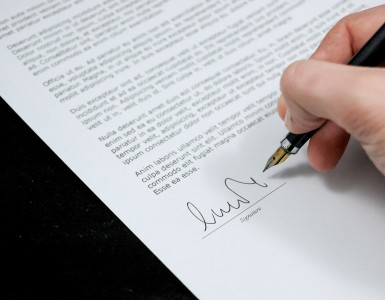
A power of attorney (POA) is a legal tool that allows an individual to appoint a family member, close friend or other person (an attorney) to manage certain legal and administrative activities on their behalf.
There are a number of situations where a power of attorney may be an appropriate solution, for example, to manage a person’s affairs while they are recovering from surgery, or to undertake business dealings on their behalf while they are out of the country.
When setting up a power of attorney, the activities an attorney can undertake on an individual’s behalf can either be clearly defined, such as only being able to manage day-to-day finances, or left open to allow them to act in a wider variety of situations. A power of attorney is only valid as long as the person providing the authority has the mental capacity to oversee the activities being undertaken on their behalf.
There is also another type of power of attorney, a lasting power of attorney (LPA), which allows someone to act on a person’s behalf if they no longer have the mental capacity to manage their affairs.
The different power of attornies
What’s the difference between a power of attorney and a lasting power of attorney?
A lasting power of attorney is most appropriate for situations where the individual believes that they will lose their mental capacity at some point in the future, for example, through illness.
The key difference between this and the standard power of attorney is that it ‘lasts’ beyond the loss of mental capacity, whereas a POA ceases to be valid once the individual is unable to make their own decisions.
A lasting power of attorney is available to cover an individual’s health and wellbeing, their finances and property, or both. A lasting power of attorney that covers an individual’s health can only be used once the individual has lost their mental capacity, whereas one designed to cover their finances and property can be used immediately after it has been registered, subject to the individual’s agreement.
If an individual has already lost the ability to make his or her own decisions, it’s not possible to set up a lasting power of attorney. Instead, the individual’s family will need to apply to the Court of Protection to become their deputies.
How can a notary help establish a power of attorney?
A notary public is skilled in drafting and certifying the documents required to establish a power of attorney, including lasting powers of attorney.
At South London Notaries, we are experienced in the creation of power of attorney documentation for use in England, Wales and abroad. Get in touch with South London Notaries now to find out more about how a power of attorney could be of benefit to you, or to start the process of establishing a power of attorney.

